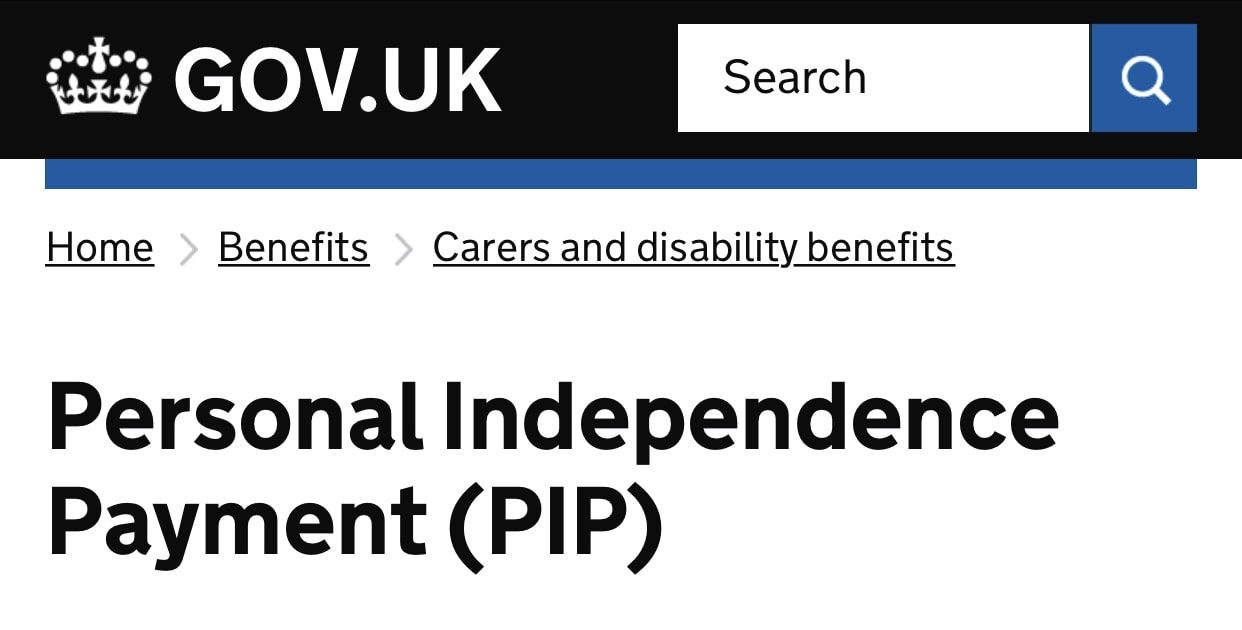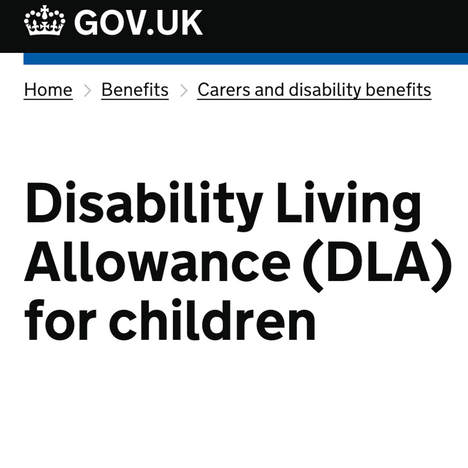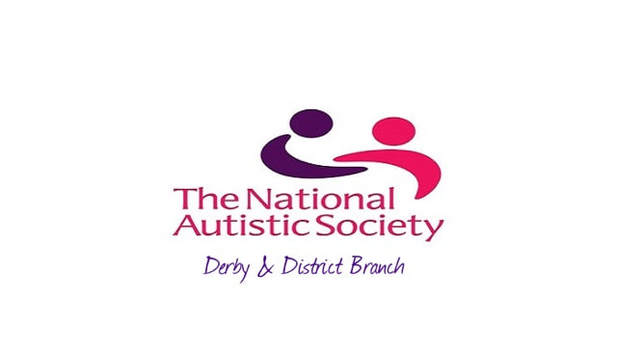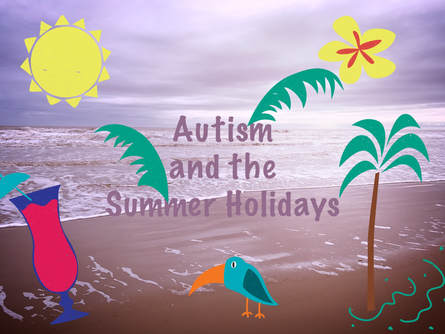|
I thought I would continue from last weeks post regarding Disability Living Allowance for children or DLA and just explain what happens when your child reaches the age of 16. It's ok, not to scary but it does involve re applying for PIP as DLA is not automatically transferred over. This can cause a bit of stress to people leaving them feeling very uncertain about what happens in the future for their young person.
PIP is a benefit for people with disabilities and is available to that person whether in work or education. It is not means tested and it can be awarded to those between the ages of 16 and 64 even if they are in receipt of other benefits so it doesn't matter how much savings you have it is there to help with care and and to get around. The application process starts with a brief phone call in which you talk to someone about basic details and if the person with the disability requires an appointee. This person will handle any finances and tasks that the person with the disability is unable to do. After that a paper form will be sent out which needs to be completed and then if necessary there may be a request to attend a face to face assessment. The decision will be made after all the information has been collected and although there have been delays in applications the DWP do intend letting you know their decision within three months. It is very similar to DLA when applying, there is a care component and a mobility so there are two different payments as with DLA. The form requests information regarding how much help is required with medication, feeding and drinking, washing, dressing, toileting, going out, communication, interaction with people, travel and managing finances. I thought it was a much easier form to film in compared to the DLA. It does take into consideration a wide range of disabilities including the difficulties people have on the autism spectrum. There is a really good fact sheet available on the NAS website with lots of information about PIP, an easy ready guide which the government has produced, and details how to claim for it too. Just follow the link here: www.autism.org.uk/pip It can seem like a minefield sometimes and I know this from experience. Forms are not my favourite thing neither is talking on the phone sometimes but I can honestly say these people are there to help. There are some people who haven't had great experience with this process but all I can suggest is getting as much help and advice as possible. Talk to other parents, find a support group or contact your local authority as there are people who can help. Please don't worry and try to cope on your own. If you do struggle, contact your local NAS branch (details available at www.autism.org.uk). If you are in the Derby area contact the Derby Branch through Facebook or by email at derbyanddistrict@nas.org.uk I hope this helps, thank you for reading and I will be back for Pass the Remote tomorrow, until then take care.
0 Comments
I know there may be many people out there who are aware of DLA but I thought I would just write a small piece about it for those who have not heard about it. It may be that you have just received a diagnosis and are at the stage where you want to know 'what to do next'.
Disability Living Allowance gives financial help to those who need extra care or help with mobility. You do not need a diagnosis of Autism to be considered for this help nor is it means tested, it focuses on how much care your child needs and whether they are able to get around easily. There are two parts to a claim, a care component and mobility. You may claim for either or both. I would suggest putting a claim in for both as a lot of behaviour in relation to Autism such as lack of road safety, sensory issues and anxiety can be factors for a consideration of low rate mobility. The care component looks at a need for the amount of attention and supervision needed over a 24 hour period. Don't be too put off by the form as it is quite lengthly and it does ask you to record tasks associated with eating, sleeping drinking, washing etc. This can seem like your writing a life story, it may seem very negative and depressing so I would recommend filling the form in stages, little at a time and take a break. There is help available if you are finding it difficult to fill in the form. The weekly rates for the care component are: lowest: £22 middle £55.65 highest £83.10 and for mobility lower: £22 higher £58 DLA is usually paid every 4 weeks into a bank account of your choice, so it could be worth applying for to give you extra financial help if needed. If you would like more information you can go to the main government website at: www.gov.uk/disability-living-allowance-children This is for new claims regarding children up to 16 years of age. For new claims over the age of 16 you would apply for PIP which is Personal Independent Payment but I will cover that in a future post. For Autism specific information about DLA go to the National Autistic Society website at: www.autism.org.uk/dla For those who are in the Derby area and would like to know more about DLA for children the NAS Derby and District Branch have a speaker coming to talk about this very subject. Jane Owen-Pam is a Welfare Rights Advisor and is coming along to talk to the branch. It will take place at The Farmhouse, 60 Ashbourne Road, Derby. DE22 4LY on Tuesday 10th October 7pm - 9pm. To book a place please send an email to: derbyanddistrict@nas.org.uk I hope that helps a little, please do try and claim as you may be entitled. In the possibility you get your claim refused you can appeal to the decision. There is support regarding this available too and I would advise to keep going, don't give up! Thanks for reading today, join me again tomorrow for 'Pass the Remote'. Take care for now......... Well how about your local branch of the National Autistic Society? There are many dotted all around the UK and they are organised in different ways depending on the volunteers who run them. Some concentrate on fundraising, some are very proactive with running groups and activities and others concentrate on supporting families with support groups and advice.
At the Derby and District Branch we organise many support groups in the area which are open to anyone wanting to know more about Autism. This maybe because you are a parent with a child who is diagnosed with Autism, someone who is on the spectrum yourself, you may be a teacher or teaching assistant or someone who is studying at university and collating research for your work, support works in all different ways. We, as a committee are very small in numbers but have experience of Autism. Some of us are parents ourselves with children or young adults on the spectrum or work in this field too. Our support groups are friendly, relaxed with no pressure to say anything if you don't want to, you can simply just come along, have a brew and a biscuit and just listen to others. Personally for me I don't think there is anything as good as mixing with other parents, it's where you get great first hand advice because these are real people living and breathing the Autism world. We've all coped, not coped, had success, made mistakes and some us have still got lots and lots to learn. You get to make new friends too which has been great for me as a single parent, it's been therapy at some points in life. We work on the aspect of giving people a place to chat and signpost those to vital information they may need, if we don't have the answers for you straightaway we will find help for you so bear with us we will find a solution somewhere for you. As most of our groups are based in schools we are now back in full flow after the summer holidays and have an up to date list of new groups with some interesting speakers coming along to talk to you. If you would like to book a place on one of our talks just send an email to derbyanddistrict@nas.org.uk otherwise just come along. For more information on our branch or if you would like to join us as a volunteer we do have a Facebook page: www.facebook.com/NASDerbyBranch/ Here is a list of our meetings up until the end of the year drive.google.com/file/d/0ByA4tntibHH7c20tNGtobDRyVnM/view and if you would like to find a branch near you, you can search for one on the National Autistic Society website at: www.autism.org.uk I know sometimes for some it is hard to reach out for help and support. Some people find it hard to do and try so hard to cope until things become so desperate you can't cope anymore. We know how that feels and have all been there at some point. I hear a lot of people say 'I'm so glad we got in touch' or I'm glad we went to hear that person talk' or pleased they attended a seminar. There is so much information and useful too so don't feel nervous about coming forward. Help is available in so many ways, reach out and allow yourself to take it, WE ARE HERE FOR EACH OTHER. I hope that helps a little and maybe I'll see you around at one of our groups. Thank you so much for reading, I will be back for my TV chat tomorrow with 'Pass the Remote' so take care until then. Brain in Hand is a really good resource for helping people with autism, mental health issues or those with brain injuries by managing their anxieties and giving them the opportunity to live their lives as independently as possible.
We know as parents, carers and professionals that autism involves being in control a lot of the time. The need for organisation is great and even more important is a solution to help these people when things don't turn out the way they had planned. This service really does seem to work, it can be tailored to each persons needs and acts as a buffer for times when needed the most. There are a lot of students using this to support them through college, university and also for those in the workplace too. It isn't something I have used personally so I can't vouch for it but have read a lot into it and love the idea. Does it help those with more high functioning autism? Maybe, but it is something to try. I am constantly thinking whether these kind of things would work for my son, and I'm not sure but in some cases it's a matter of 'give it a go or you'll never know'. Basically this is a software which contains a diary and within this diary the user may enter all the details for their typical timetable, this includes from the moment of waking to the time they go to bed. You can include all timed activities and also those unplanned scenarios that may crop up. The software also provides solutions or coping strategies that may arise. To support this there is a traffic light system where green is fine, amber indicates a little more anxiety and when the time comes to press red this refers you to call your support assistance for more help. Your assistance may come from the National Autistic Society who fully support this programme, an organisation such as college or work or a family member. This will be someone you will speak to on the phone to help you immediately. Brain in Hand works from an app on your phone and then you can also access all the information from a portal on a pc/laptop too. This comes in handy to go over you day and see where you can improve certain situations and this information can also be used at a EHCP review meeting. I think that is brilliant as the evidence of every day life, strengths and weaknesses are all there logged and it would make the process so much easier. This all does come at a cost and I'll be honest I had to take a deep breath in, tossed it to one side and thought now way! Just like you may do now when I tell you but stick with me a moment longer. The app is FREE to download, it contains a good example of how it can be used too, that's the good news....... The initial cost for the licence is £540 and this includes the users own personal website, the cost of the traffic light alerts and technical support. There is a set up fee of £280 but I'm sure this may be possible to set up by yourself. There is an added fee if you use a support mentoring service such as the NAS or another organisation but having a family member to mentor may keep the cost down. So yes arggggggghhhhh it's expensive BUT there are ways you can try and fund it. If your young person has a EHCP you can apply for the personal budget for this as it is classed as an aid to support their needs. There is also the Disability Students Allowance and other bursaries that are available at colleges so contact your local provider for more information. ALWAYS ask for funding support as there just maybe something available which you don't know about and sometimes it is a case of asking rather than waiting to be told. Be pushy and demand it, for one you are entitled and two this kind of service can cut down the services from local councils massively so they should be glad to help (in theory). Here are a few links to help you find some more information: Brain in Hand Website www.braininhand.co.uk The Government website is good for information on finance for students with disabilities. Here is the link to information regarding allowances and bursaries: www.gov.uk/education/student-grants-bursaries-scholarships This isn't a service that is going to suit everyone but I thought I would highlight it just in case it may be of any help. The reviews of those people using it are very positive and it has made a big difference to people's lives so it does look positive. The other thing this service does provide is reassurance for a parent or carer because as much as we would love to wrap our children up in some cocoon preventing them from ever having enter the big world out there, we can't, so we have to rely on finding something to help. If you are using Brain in Hand please let me know by leaving a comment below as I would love to know how it is working out. Thank you for reading today and please join me again tomorrow for Pass the Remote Sunday. Take care for now....... A mixed reaction to that question I imagine. For some the school holiday cannot come quick enough as it means a rest and a chance to re charge enabling a fresh start in September. For others it is the start of a six week nightmare.
The thing is, some our kids who have Autism are quite content with the routine and structure of a school day. It is planned, timed activities and there is a clear start and end to the day. It's going home that this all changes, unless you are a parent who is waiting with a timetable to carry on that routine at home, some of us do with a chart or visual prompts but a lot of us struggle to know what the right thing is to do. There is no right or wrong is there? It is a case of going with the flow and it does depend on the child. I have tried the charts at home and even printed off Makaton symbols in the early days which did help to some extent but life is full of change and I know that is no help at all for someone with Autism. So what do we do to to get over the summer period? For us it's about getting out and just walking. Both my boys are getting older now and tend to do their own thing but there is one thing about my eldest son and that he is never bored, he is always busy. He will draw or make powerpoint presentations of his favourite Disney movies, he never stops. Walking is great, it works off some energy, keeps us fit and he takes his lightsaber out with him, just in case we may meet anyone from the dark side, well you never know! I tend not to plan too much, I used to always think we had got to go here and there and fill the holidays with mega exciting stuff. This lead to a lot of frustration, not wanting to go out when it came around to it, as anyone knows the day can take a massive turn depending on behaviour. So I chilled out, relaxed and now go with the flow. We still do exciting stuff but at our own pace. We take every day as it comes, if we want to do something we do but if we want to stay in and have a PJ day we do that as well. I do realise that not every household can do that as there has to be more structure for some and that's fine. We have one of those whiteboard weekly planners which is great, the kids will sometimes just get a marker and write something on that they want to do. Cricket has become our new love this year and I bought a set to take out and have a game so we are looking forward to that when it stops raining!!! As long as we are all happy and we grab that nice walk now and again, the fresh air seems to make us happy. It's easier on the pocket as well when we walk, most places are free although I did branch out on a National Trust membership this year as there was an offer on and I thought it may be nice to walk around some different places. There are many days out and activities for people with disabilities and if you are in the Derby area there is an organisation called Umbrella who have lots on over the summer. For more information check out their website at www.umbrella.uk.net If you fancy a bit of support over the holidays the National Autistic Society Derby and District Branch have a meet up on the 22nd August from 7-9pm at The Farmhouse in Derby (60 Ashbourne Road DE22 4LY) so if you fancy a couple of hours out, have a brew (there is a bar too) and just generally chat to others in the same situation then pop along, they will make you feel very welcome. Keep an eye out on your local council website as they will have information about what is going on in your area. There are a lot of 'What's On' Facebook pages too if you search for your local area. Whatever you do though I hope it is stress free and you have fun. Please leave a comment and let me know ideas you have and how you cope, it's good to share any information. Thank you for reading, please come back for more tomorrow when I will be chatting about the world of TV on 'Pass the Remote'. Take care for now........ |
Everything AutismEvery Saturday will be about Autism, family and life. Archives
May 2020
Categories
All
|





 RSS Feed
RSS Feed
